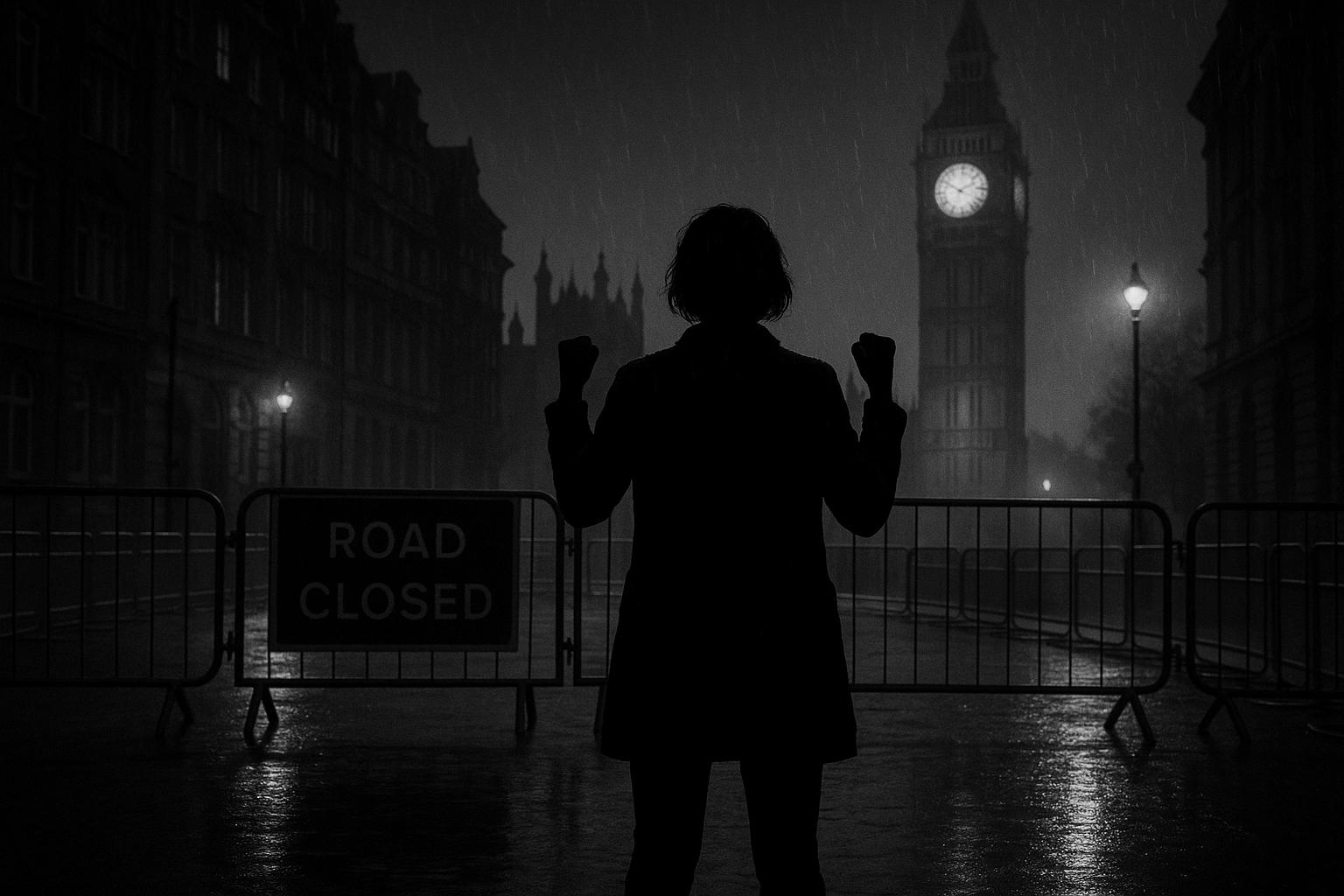A businessman known as 'Big Fish' or 'Trendz' took a prominent role in a counter-demonstration in Tower Hamlets, east London, opposing a planned UKIP protest that was ultimately banned by the Metropolitan Police due to concerns over serious disorder. 'Big Fish', a prolific social media poster with a presence in Bethnal Green, was seen on stage alongside masked protesters and Tower Hamlets mayor Lutfur Rahman, who publicly supported the counter-event. The demonstration saw many young men clad in black with their faces covered, waving Bangladesh and Palestine flags as a show of defiance against the far-right presence that UKIP intended to project in the area.
The Metropolitan Police, citing a "realistic prospect of serious disorder," imposed Public Order Act conditions that prevented UKIP from holding their protest in Whitechapel or anywhere in Tower Hamlets. The planned march was part of a wider series of UKIP events branded as a "mass deportations tour," with organisers calling on supporters to "reclaim Whitechapel from the Islamists." This decision was made considering the borough's significant Muslim population and the potential for clashes. Despite the police ban, UKIP's protest was relocated to central London, where four counter-demonstrators were arrested for breaching police conditions and refusing to leave.
'Big Fish' not only participated in the rally but also sold £5 balaclavas to protesters, urging them to cover their faces to avoid arrest, stating, "No face, no case." This move, alongside calls from some masked protesters chanting slogans such as "We will honour all our martyrs. Allahu akbar. Zionist scum off our streets," has raised concerns among local residents about the atmosphere of intimidation. Some community members expressed unease over the presence of masked men, questioning the safety for women and seniors amid the tensions. Critics have suggested that such actions fuel division and potentially incite violence.
Tower Hamlets mayor Lutfur Rahman, a controversial figure who was previously disbarred and barred from elections for vote-rigging and religious intimidation but re-elected in 2022, urged residents to demonstrate unity and diversity in response to the far-right threat. He advocated for a peaceful protest without masks initially, although the subsequent masked presence on the streets suggested a more militant undertone to the counter-demonstration.
The police's handling of the event has attracted criticism from campaigners against antisemitism, who argue that the Metropolitan Police showed leniency towards "extremist mobs" while imposing strict bans on other protests, particularly those involving Jewish communities. The Campaign Against Antisemitism questioned why the police allowed masked groups to march through Tower Hamlets unimpeded, describing this approach as jeopardising justice and safety for all Londoners. The Metropolitan Police responded by stating they did not ban the UKIP protest outright but set conditions to avoid serious disorder, noting their consistent use of similar powers to protect vulnerable communities, including Jewish ones, during various protests.
Meanwhile, the Green Party in Tower Hamlets had called for opposition to UKIP's Islamophobic rhetoric, highlighting the borough's rich tradition of welcoming migrants and defending its diverse identity. Nigel Farage, UKIP's former leader, reacted to the masked counter-demonstrators by likening them to a "foreign invading army," calling the scene in Tower Hamlets "one of the most terrifying things" he had witnessed.
In the broader context, Tower Hamlets is recognised as one of the UK's most densely populated and fastest-growing boroughs, boasting high levels of community cohesion. Official statements from Tower Hamlets council praised police efforts to manage the protests and the local community's ongoing commitment to harmony, diversity, and inclusion despite the tensions that surfaced during the recent events.
Overall, the confrontation in Tower Hamlets reflects the deep divisions within segments of British society, with far-right groups attempting to capitalise on anti-immigration and anti-Islam sentiments, and local communities pushing back to defend their multicultural identity. The police's balancing act between preventing disorder and safeguarding freedoms remains a contentious and closely scrutinised aspect of managing such volatile events.
📌 Reference Map:
- Paragraph 1 – [1] Daily Mail
- Paragraph 2 – [2] Met Police News, [5] upday.com, [7] Munabulletin
- Paragraph 3 – [1] Daily Mail
- Paragraph 4 – [1] Daily Mail, [3] Tower Hamlets Green Party
- Paragraph 5 – [1] Daily Mail, [2] Met Police News
- Paragraph 6 – [1] Daily Mail, [6] GB News
- Paragraph 7 – [1] Daily Mail, [4] GB News, [5] upday.com
- Paragraph 8 – [6] GB News, [3] Tower Hamlets Green Party
- Paragraph 9 – [1] Daily Mail, [2] Met Police News
- Paragraph 10 – [1] Daily Mail, [3] Tower Hamlets Green Party
Source: Noah Wire Services
